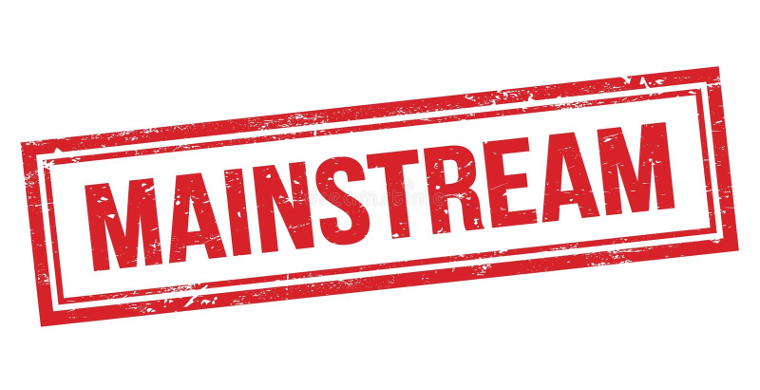MAINSTREAM
Duane W.H. Arnold, PhD
Special to Virtueonline
www.virtueonline.org
June 23, 2021
We used to know what it was, regardless of the church body we were discussing. It was the broad middle. In that broad middle, you might find those that were perhaps more or less conservative, or more or less liberal, who, regardless, were considered "mainstream". Yes, most church bodies also had radical fringes, but they were regarded as being eccentric, that is, outside of the broad middle mainstream. Within that mainstream, individual churches might be known for their particular "personality" while maintaining cordial and friendly relationships with others in that broad middle. So, for example, one church might be known for its social justice programs and outreach to the homeless, while another church was renowned for their choir and music program. Yet another church might be where you would attend if you loved high church liturgy, while there was another church belonging to the same body across town, which had a more informal order of worship and was known for its evangelical fervor. Nevertheless, all these were part of the mainstream. The clergy of these churches, despite differences in style, were collegial and, more often than not, supportive of each other's work. This collegiality and lack of insistence that everyone should walk in lock-step, to a large measure, defined the mainstream for most church bodies.
For those on the radical fringes, however, this construct was an impossibility. This came with the strident insistence that they were right, both morally and theologically, and that those who thought differently were wrong. There was little to no interest in collegiality, and certainly no desire to be supportive of those who either thought or exercised their ministry differently. For them, walking in lock-step with regard to everything from politics, to how one worshiped, to theology, was not a danger to be avoided, but was actually the goal. Moreover, those on the fringe tended to be both more vocal and more committed to getting their own way, or putting across their point of view, even if it meant the destruction or the crippling of the mainstream.
This struggle between the mainstream and more strident voices has been taking place in most denominations and associations over the course of the last forty years and is continuing to the present time as we have seen in the recent debates and fractures of the UMC and the SBC. These fractures and debates have been of long standing. While the latest examples of this phenomena may be exacerbated by the current toxic mix of faith and politics, I suspect that the root cause is deeper. Additionally, as I look over the past several decades, I believe that the slow persistent destruction of what was once the mainstream is a self-inflicted wound. The center has not held. Indeed, the center has been all but abandoned. The result of this is that those who were once considered eccentric, on the right and the left, are now almost the only voices that are heard as those who were committed to the values of the mainstream seek places of refuge elsewhere.
These days, it seems to me, that eccentricity has actually triumphed as the face of American Christianity. While certainly an expression of faith, can we equate the theater-presentation of the local mega-church with praise band, fog machine and TED talk with anything known as "Church" over the course of two millennia? Why is it that walking into a local Episcopal parish church on Sunday, I am greeted by a rainbow banner placed to remind me that it is Pride month? What should I think of a church festooned with American flags and promoting conspiracy theories while across the street the sermon is more about liberal politics than the gospel? Sometimes it really feels as though the inmates are in charge of the asylum.
Breaking away from those with whom you do not agree, has, of course, become standard practice within many church bodies, as has the practice of muffling voices of moderation - voices that are not silenced, but simply go elsewhere. The results, however, have been less than satisfactory. Anglicans, for example, were once part of a diverse worldwide communion. Now there are literally dozens of breakaway groups, each with their own overlapping bishops, dioceses and cathedrals (most struggling to survive) that, with some few exceptions, exist in a twilight zone of their own making, often fueled by long forgotten arguments and debates that mean little or nothing to anyone under fifty.
If I were to judge by what I see, it would seem that eccentricity has become a virtue and moderation (and/or collegiality) has become a vice. Rather than transforming a fractured, divided and polarized society, we, as the Church, have become its reflection. If, at the end of the day, all we have to offer people is the pale shattered reflection of society at large, we will not only fail, we will deserve to fail.
Duane W.H. Arnold, PhD
The Project














